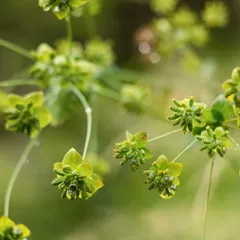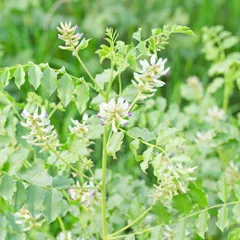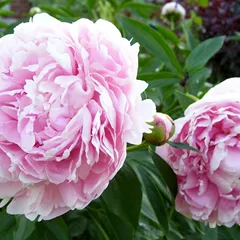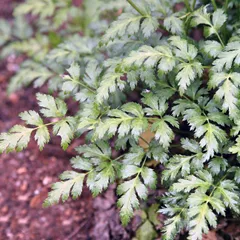Hepatitis according to Chinese Medicine
The information provided here is not a replacement for a doctor. You shouldn't use it for the purpose of self-diagnosing or self-medicating but rather so you can have a more informed discussion with a professional TCM practitioner.
Hepatitis factsheet
Possible causes and remedies:
Blood Deficiency with disharmony of Liver and Spleen
Symptoms: Anemia Vertigo Dizziness and ten other symptoms
Recommended formula: Xiao Yao San
Symptoms: Belching Flank pain Irritability and five other symptoms
Recommended formula: Chai Hu Shu Gan San
In Chinese Medicine, hepatitis can be associated with thirteen so-called "patterns of disharmony". Chinese Medicine sees the body as a system, not a sum of isolated parts. A "pattern" is when the system's harmony is disrupted. It is not equivalent to the Western concept of "disease", as a matter of fact here hepatitis can be caused by thirteen different patterns.
To understand whether someone's hepatitis might be caused by a given pattern, one needs to look for signs and symptoms associated with the pattern beyond what one might typically experience from hepatitis alone. For instance when hepatitis is caused by the pattern Blood Deficiency with disharmony of Liver and Spleen, patients also experience symptoms such as chest fullness, chest pain, anemia and dizziness. Similarly, patients with Blood Deficiency with disharmony of Liver and Spleen typically exhibit empty (Xu) or wiry (Xian) pulses as well as a pale tongue.
We've listed below a description of the thirteen patterns associated with hepatitis so that you can start to get an understanding of the various possibilities according to Chinese Medicine.
Once identified, patterns are often treated using herbal formulas. Drinking herbal infusions is the most common remedy in Chinese Medicine, together with acupuncture. Here we detail below fourteen formulas that can help treat the various patterns associated with hepatitis, depending on which pattern fits your profile.
The thirteen "patterns of disharmony" associated with hepatitis
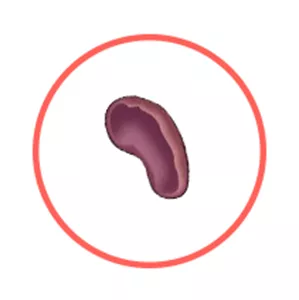
The Spleen is a so-called "Zang" Organ. Learn more about the Spleen in Chinese Medicine
Blood Deficiency with disharmony of Liver and Spleen
Pulse type(s): Empty (Xu), Wiry (Xian)
Tongue color: Pale
Recommended herbal formula: Xiao Yao San
Symptoms: Anemia Vertigo Dizziness Headaches Dry mouth Chest pain Dry throat Leukorrhea Poor appetite Chest fullness Breast distention Irregular menstruation Alternating fever and chills
Hepatitis might be due to Blood Deficiency with disharmony of Liver and Spleen if the condition is paired with typical pattern symptoms such as chest fullness, chest pain, anemia and dizziness. Similarly, patients with Blood Deficiency with disharmony of Liver and Spleen typically exhibit empty (Xu) or wiry (Xian) pulses as well as a pale tongue.
Read more about Blood Deficiency with disharmony of Liver and Spleen here
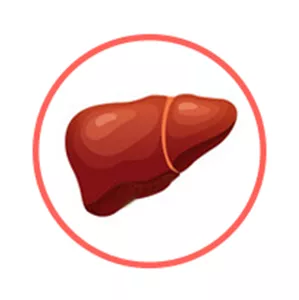
The Liver is a so-called "Zang" Organ. Learn more about the Liver in Chinese Medicine
Liver Qi Stagnation
Pulse type(s): Wiry (Xian)
Recommended herbal formula: Chai Hu Shu Gan San
Symptoms: Belching Flank pain Irritability Suppressed emotions Feelings of frustration Alternating fever and chills Abdominal distention and fullness Stifling sensation in the chest causing one to have deep sighs
Hepatitis might be due to Liver Qi Stagnation if the condition is paired with typical pattern symptoms such as flank pain, stifling sensation in the chest causing one to have deep sighs, suppressed emotions and feelings of frustration. Similarly, patients with Liver Qi Stagnation typically exhibit wiry (Xian) pulses.
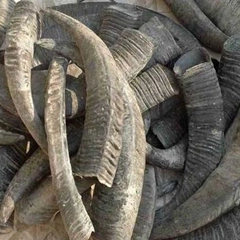
Water Buffalo Horns (Shui Niu Jiao) is the key herb for Xi Jiao Di Huang Tang, a formula used for Heat in the Blood
Heat in the Blood
Pulse type(s): Fine (Xi), Rapid (Shu)
Tongue color: Bluish-Purple
Recommended herbal formula: Xi Jiao Di Huang Tang
Symptoms: Fever Delirious speech Black and tarry stools Abdominal distention and fullness Thirst with an inability to swallow Frequent bleeding episodes in stools urine or vomit
Hepatitis might be due to Heat in the Blood if the condition is paired with typical pattern symptoms such as fever, black and tarry stools, abdominal distention and fullness and thirst with an inability to swallow. Similarly, patients with Heat in the Blood typically exhibit fine (Xi) or rapid (Shu) pulses as well as a bluish-purple tongue.
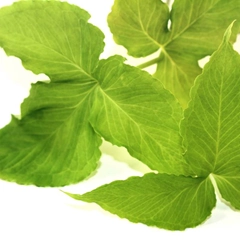
Crow-Dipper Rhizomes (Ban Xia) is the key herb for Er Chen Tang, a formula used for Phlegm
Phlegm
Pulse type(s): Slippery (Hua), Wiry (Xian)
Tongue coating: Sticky coating, Thick coating
Tongue shape: Swollen
Recommended herbal formulas: Er Chen Tang, Liu Jun Zi Tang, Ban Xia Bai Zhu Tian Ma Tang, Wen Dan Tang, Hao Qin Qing Dan Tang, Xing Su San, Wu Ling San
Symptoms: Lumps Nausea Tumors Nodules Obesity Delirium Dizziness Overweight Feeling of heaviness Muzziness of the head Numbness in the limbs Thick greasy secretions Feeling of oppression of the chest
Phlegm has a great importance in Chinese Medicine as it is both a condition in and of itself as well as a cause for other diseases.
The main cause for the formation of Phlegm is Spleen Deficiency since the Spleen rules the transformation and transportation of Body Fluids. If this function is impaired, Body Fluids accumulates and change into Phlegm.
The Lungs and Kidneys may also be involved since they each play a role in handling body Fluids: the Lungs disperse and descend Body Fluids while the Kidneys transform and excrete them. Again, if they fail to perform those roles, Body Fluids will accumulate and become Phlegm.
That being said, the Spleen malfunction is the fundamental reason behind the formation of Phlegm and, as such, treatments will focus on it first and foremost.
There are two broad types of Phlegm: so-called "Substantial Phlegm" and "Non-Substantial Phlegm". Simply put, Substantial Phlegm can be seen, such as sputum in the Lungs and throat. Non-Substantial Phlegm is more hidden and will manifest itself into, for instance, kidney stones, gallstones or arthritic bone deformities.
Phlegm can accumulate and settle down in different parts of the body and lead to corresponding symptoms. For example, if it stays in the joints, muscles and Channels, there are muscle numbness, bone deformities and etc. If it mists the Heart, it causes many mental illness. If it settles in the Gall Bladder or Kidney, it leads to stones in these Organs.
Phlegm can further be categorized according to its nature: there is Damp-Phlegm, Phlegm-Heat, Cold-Phlegm, Wind-Phlegm, Qi-Phlegm, Phlegm-Fluids and etc.
"Phlegm-Fluids" is very similar to Dampness and is very watery and thin. It can be heard splashing in the body, found usually in the Stomach and Small Intestines, hypochondrium, limbs or above the diaphragm.

The Spleen is a so-called "Zang" Organ. Learn more about the Spleen in Chinese Medicine
Spleen Deficiency with Dampness
Recommended herbal formula: Wu Ling San
Symptoms: Edema Diarrhea Urinary difficulty General sensation of heaviness
Hepatitis might be due to Spleen Deficiency with Dampness if the condition is paired with typical pattern symptoms such as edema, general sensation of heaviness, diarrhea and urinary difficulty.
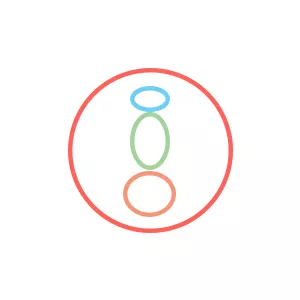
The Triple Burner is a so-called "Fu" Organ. Learn more about the Triple Burner in Chinese Medicine
Phlegm in the Lower Burner
Recommended herbal formula: Wu Ling San
Symptoms: Vertigo Coughing Shortness of breath Vomiting frothy saliva Throbbing pulsations just below the umbilicus
Hepatitis might be due to Phlegm in the Lower Burner if the condition is paired with typical pattern symptoms such as throbbing pulsations just below the umbilicus, vomiting frothy saliva, vertigo and shortness of breath.
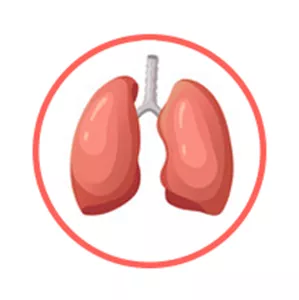
The Lungs is a so-called "Zang" Organ. Learn more about the Lungs in Chinese Medicine
Phlegm Heat in the Lungs
Pulse type(s): Rapid (Shu), Slippery (Hua)
Tongue coating: Sticky coating, Yellow coating
Tongue shape: Swollen
Recommended herbal formula: Xiao Xian Xiong Tang
Symptoms: Clump Phlegm Chest pain Constipation Epigastric pain Clumping in the chest Bitter taste in the mouth Epigastric focal distention Focal distention of the chest Coughing of copious thick yellow sputum
Hepatitis might be due to Phlegm Heat in the Lungs if the condition is paired with typical pattern symptoms such as constipation, bitter taste in the mouth, coughing of copious thick yellow sputum and chest pain. Similarly, patients with Phlegm Heat in the Lungs typically exhibit rapid (Shu) or slippery (Hua) pulses as well as a tongue with sticky coating, yellow coating.

The Liver is a so-called "Zang" Organ. Learn more about the Liver in Chinese Medicine
Lung Qi Deficiency and Liver Qi Stagnation
Pulse type(s): Empty (Xu), Tight (Jin)
Tongue coating: Thin white coating
Tongue color: Normal (light red), Pale
Recommended herbal formula: Xiao Chai Hu Tang
Symptoms: Coughing Dizziness Headaches Depression Moving pain Listlessness Hypochondrium fullness
Hepatitis might be due to Lung Qi Deficiency and Liver Qi Stagnation if the condition is paired with typical pattern symptoms such as coughing, hypochondrium fullness, dizziness and headaches. Similarly, patients with Lung Qi Deficiency and Liver Qi Stagnation typically exhibit empty (Xu) or tight (Jin) pulses as well as a normal (light red), pale tongue with thin white coating.
Read more about Lung Qi Deficiency and Liver Qi Stagnation here

The Triple Burner is a so-called "Fu" Organ. Learn more about the Triple Burner in Chinese Medicine
Phlegm-Heat in the Middle Burner
Pulse type(s): Rapid (Shu), Wiry (Xian)
Tongue coating: Yellow coating
Tongue color: Red tip
Recommended herbal formula: Ban Xia Xie Xin Tang
Symptoms: Poor appetite Abdominal fullness Dry heaves or vomiting Borborygmi with diarrhea Epigastric focal distention
Hepatitis might be due to Phlegm-Heat in the Middle Burner if the condition is paired with typical pattern symptoms such as epigastric focal distention, abdominal fullness, dry heaves or vomiting and borborygmi with diarrhea. Similarly, patients with Phlegm-Heat in the Middle Burner typically exhibit rapid (Shu) or wiry (Xian) pulses as well as a red tip tongue with yellow coating.

The Lungs is a so-called "Zang" Organ. Learn more about the Lungs in Chinese Medicine
Lung Qi Deficiency
Recommended herbal formula: Ba Zhen Tang
Symptoms: Weak voice Aversion to speak Shortness of breath
Hepatitis might be due to Lung Qi Deficiency if the condition is paired with typical pattern symptoms such as shortness of breath, weak voice and aversion to speak.

The Spleen is a so-called "Zang" Organ. Learn more about the Spleen in Chinese Medicine
Spleen Qi Deficiency
Recommended herbal formula: Ba Zhen Tang
Symptoms: Weak Limbs Poor appetite
Hepatitis might be due to Spleen Qi Deficiency if the condition is paired with typical pattern symptoms such as poor appetite and weak limbs.
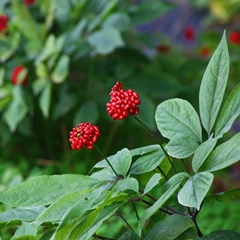
Ginseng (Ren Shen) is the key herb for Ba Zhen Tang, a formula used for Qi and Blood Deficiency
Qi and Blood Deficiency
Recommended herbal formula: Ba Zhen Tang
Symptoms: Vertigo Pale face Pale lips Pale tongue Palpitations
Hepatitis might be due to Qi and Blood Deficiency if the condition is paired with typical pattern symptoms such as palpitations, vertigo, pale face and pale lips.

The Liver is a so-called "Zang" Organ. Learn more about the Liver in Chinese Medicine
Liver Qi Stagnation that transforms into Heat
Pulse type(s): Rapid (Shu), Wiry (Xian)
Tongue coating: Yellow coating
Tongue color: Red
Recommended herbal formula: Jin Ling Zi San
Symptoms: Hernial pain Irritability Bitter taste in the mouth Intermittent epigastric pain Painful periods that get worse with hot food or drinks
Hepatitis might be due to Liver Qi Stagnation that transforms into Heat if the condition is paired with typical pattern symptoms such as intermittent epigastric pain, hernial pain, painful periods that get worse with hot food or drinks and irritability. Similarly, patients with Liver Qi Stagnation that transforms into Heat typically exhibit rapid (Shu) or wiry (Xian) pulses as well as a red tongue with yellow coating.
Read more about Liver Qi Stagnation that transforms into Heat here
The fourteen herbal formulas that might help with hepatitis
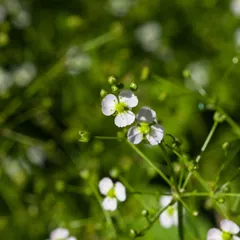
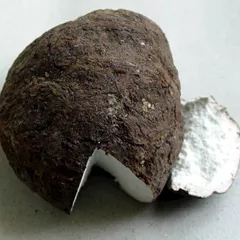
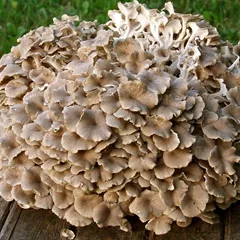
The top herbs in Wu Ling San are Water Plantain (Ze Xie), Poria-Cocos Mushrooms (Fu Ling) and Polyporus (Zhu Ling)
Wu Ling San
Source date: 220 AD
Number of ingredients: 5 herbs
Key actions: Promotes urination,. Warms the Yang. Strengthens the Spleen. Promotes Qi transformation function. Drains Dampness. Clears edema.
Why might Wu Ling San help with hepatitis?
Because it is a formula often recommended to help with the patterns Phlegm, Spleen Deficiency with Dampness and Phlegm in the Lower Burner which are sometimes associated with hepatitis. If any of these patterns look like something you might suffer from, this formula might help (although please seek confirmation with a professional practitioner beforehand).

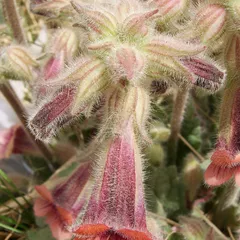
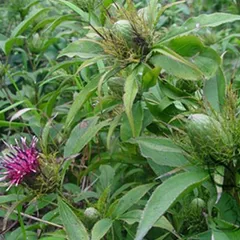
The top herbs in Ba Zhen Tang are Ginseng (Ren Shen), Prepared Rehmannia (Shu Di huang) and Atractylodes Rhizomes (Bai Zhu)
Ba Zhen Tang
Source date: 1326 AD
Number of ingredients: 10 herbs
Key actions: Tonifies and augments Qi. Tonifies and augments Blood.
Why might Ba Zhen Tang help with hepatitis?
Because it is a formula often recommended to help with the patterns Lung Qi Deficiency, Spleen Qi Deficiency and Qi and Blood Deficiency which are sometimes associated with hepatitis. If any of these patterns look like something you might suffer from, this formula might help (although please seek confirmation with a professional practitioner beforehand).
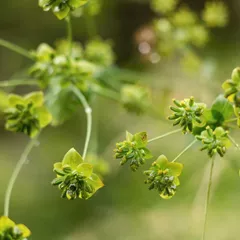
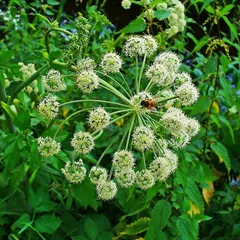
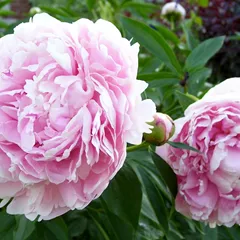
The top herbs in Xiao Yao San are Bupleurum Roots (Chai Hu), Dong Quai (Dang Gui) and White Peony Roots (Bai Shao)
Xiao Yao San
Source date: 1107 AD
Number of ingredients: 6 herbs
Key actions: Harmonizes the function of Liver and Spleen. Relieves Liver Qi stagnation. Nourishes the Blood.
Why might Xiao Yao San help with hepatitis?
Because it is a formula often recommended to help treat Blood Deficiency with disharmony of Liver and Spleen, a pattern sometimes associated with hepatitis. If it looks like you might suffer from Blood Deficiency with disharmony of Liver and Spleen, this formula might help (although please seek confirmation with a professional practitioner beforehand).



The top herbs in Chai Hu Shu Gan San are Bupleurum Roots (Chai Hu), Szechuan Lovage Roots (Chuan Xiong) and Coco-Grass Rhizomes (Xiang Fu)
Chai Hu Shu Gan San
Source date: 1602
Number of ingredients: 7 herbs
Key actions: Disperses Stagnant Liver Qi and Blood. Alleviates pain. Harmonizes Blood.
Why might Chai Hu Shu Gan San help with hepatitis?
Because it is a formula often recommended to help treat Liver Qi Stagnation, a pattern sometimes associated with hepatitis. If it looks like you might suffer from Liver Qi Stagnation, this formula might help (although please seek confirmation with a professional practitioner beforehand).
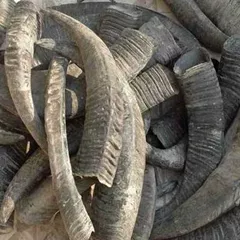


The top herbs in Xi Jiao Di Huang Tang are Water Buffalo Horns (Shui Niu Jiao), Unprepared Rehmannia (Di Huang) and Red Peony Roots (Chi Shao)
Xi Jiao Di Huang Tang
Source date: 650 AD
Number of ingredients: 4 herbs
Key actions: Treats severe fevers and Heat in the Blood system. Removes Blood Stagnation.
Why might Xi Jiao Di Huang Tang help with hepatitis?
Because it is a formula often recommended to help treat Heat in the Blood, a pattern sometimes associated with hepatitis. If it looks like you might suffer from Heat in the Blood, this formula might help (although please seek confirmation with a professional practitioner beforehand).

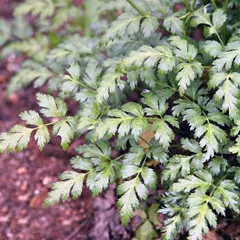
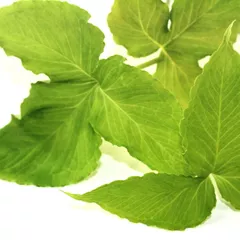
The top herbs in Xiao Xian Xiong Tang are Snake Gourds (Gua Lou), Goldthread Rhizomes (Huang Lian) and Crow-Dipper Rhizomes (Ban Xia)
Xiao Xian Xiong Tang
Source date: 220 AD
Number of ingredients: 3 herbs
Key actions: Clears Heat. Transforms Phlegm. Expands the chest. Dissipates clumps.
Why might Xiao Xian Xiong Tang help with hepatitis?
Because it is a formula often recommended to help treat Phlegm Heat in the Lungs, a pattern sometimes associated with hepatitis. If it looks like you might suffer from Phlegm Heat in the Lungs, this formula might help (although please seek confirmation with a professional practitioner beforehand).



The top herbs in Xiao Chai Hu Tang are Bupleurum Roots (Chai Hu), Baikal Skullcap Roots (Huang Qin) and Crow-Dipper Rhizomes (Ban Xia)
Xiao Chai Hu Tang
Source date: 220 AD
Number of ingredients: 7 herbs
Key actions: Treats the Lesser Yang Channels (Gallbladder and Triple Warmer). Regulates the Liver and Spleen functions. Addresses combined Yin-Yang symptoms of External and Internal, Excess and Deficiency, and Hot and Cold.
Why might Xiao Chai Hu Tang help with hepatitis?
Because it is a formula often recommended to help treat Lung Qi Deficiency and Liver Qi Stagnation, a pattern sometimes associated with hepatitis. If it looks like you might suffer from Lung Qi Deficiency and Liver Qi Stagnation, this formula might help (although please seek confirmation with a professional practitioner beforehand).



The top herbs in Ban Xia Xie Xin Tang are Goldthread Rhizomes (Huang Lian), Baikal Skullcap Roots (Huang Qin) and Crow-Dipper Rhizomes (Ban Xia)
Ban Xia Xie Xin Tang
Source date: 220 AD
Number of ingredients: 7 herbs
Key actions: Reverses the flow of Rebellious Stomach Qi. Relieves both Heat and Cold Stagnation in the gastrointestinal tract.
Why might Ban Xia Xie Xin Tang help with hepatitis?
Because it is a formula often recommended to help treat Phlegm-Heat in the Middle Burner, a pattern sometimes associated with hepatitis. If it looks like you might suffer from Phlegm-Heat in the Middle Burner, this formula might help (although please seek confirmation with a professional practitioner beforehand).



The top herbs in Jin Ling Zi San are Sichuan Chinaberries (Chuan Lian Zi) and Corydalis Tubers (Yan Hu Suo)
Jin Ling Zi San
Source date: 992 AD
Number of ingredients: 2 herbs
Key actions: Moves Liver Blood and Liver Qi. Drains Liver Heat or Fire. Stops pain.
Why might Jin Ling Zi San help with hepatitis?
Because it is a formula often recommended to help treat Liver Qi Stagnation that transforms into Heat, a pattern sometimes associated with hepatitis. If it looks like you might suffer from Liver Qi Stagnation that transforms into Heat, this formula might help (although please seek confirmation with a professional practitioner beforehand).



The top herbs in Wan Dai Tang are Atractylodes Rhizomes (Bai Zhu), Yam (Shan Yao) and Ginseng (Ren Shen)
Wan Dai Tang
Source date: 1826 AD
Number of ingredients: 10 herbs
Key actions: Tonifies the Middle Burner. Removes Dampness. Stops vaginal discharge. Strengthens the Spleen.
Why might Wan Dai Tang help with hepatitis?
Because it is a formula often recommended to help treat , a pattern sometimes associated with hepatitis. If it looks like you might suffer from , this formula might help (although please seek confirmation with a professional practitioner beforehand).
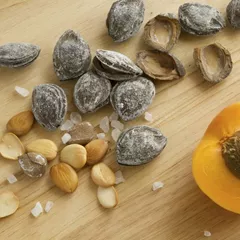

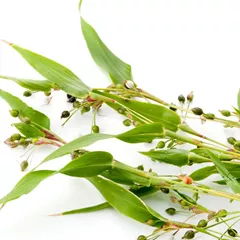
The top herbs in San Ren Tang are Apricot Seeds (Xing Ren), Cardamon Fruits (Bai Dou Kou) and Job's Tears (Yi Yi Ren)
San Ren Tang
Source date: 1798 AD
Number of ingredients: 8 herbs
Key actions: Clears Damp-Heat. Disseminates the Qi. Facilitates the Qi mechanisms.
Why might San Ren Tang help with hepatitis?
Because it is a formula often recommended to help treat , a pattern sometimes associated with hepatitis. If it looks like you might suffer from , this formula might help (although please seek confirmation with a professional practitioner beforehand).
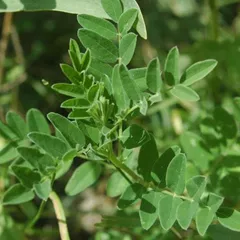
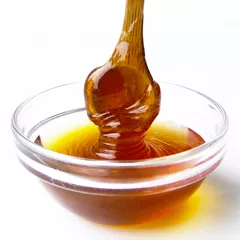
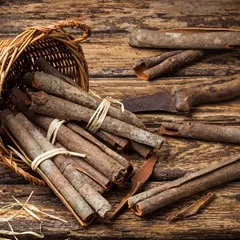
The top herbs in Huang Qi Jian Zhong Tang are Milkvetch Roots (Huang Qi), Maltose (Yi Tang) and Cinnamon Bark (Rou Gui)
Huang Qi Jian Zhong Tang
Source date: 220 AD
Number of ingredients: 7 herbs
Key actions: Warms and tonifies the Middle Burner (Spleen and Stomach). Tonifies Qi. Relieves spasmodic pain.
Why might Huang Qi Jian Zhong Tang help with hepatitis?
Because it is a formula often recommended to help treat , a pattern sometimes associated with hepatitis. If it looks like you might suffer from , this formula might help (although please seek confirmation with a professional practitioner beforehand).

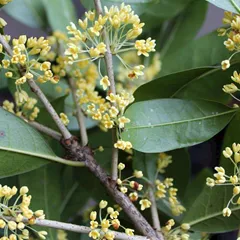

The top herbs in Chai Hu Gui Jiang Tang are Bupleurum Roots (Chai Hu), Cinnamon Twigs (Gui Zhi) and Baikal Skullcap Roots (Huang Qin)
Chai Hu Gui Jiang Tang
Source date: 220 AD
Number of ingredients: 7 herbs
Key actions: Harmonizes and releases the Lesser Yang. Removes Stagnation . Warms the Interior. Dispels Cold.
Why might Chai Hu Gui Jiang Tang help with hepatitis?
Because it is a formula often recommended to help treat , a pattern sometimes associated with hepatitis. If it looks like you might suffer from , this formula might help (although please seek confirmation with a professional practitioner beforehand).


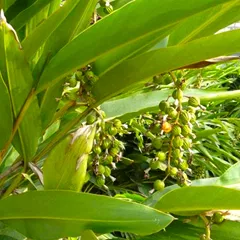
The top herbs in Dan Shen Yin are Red Sage Roots (Dan Shen), Sandalwood (Tan Xiang) and Amomum Fruits (Sha Ren)
Dan Shen Yin
Source date: 1801 AD
Number of ingredients: 3 herbs
Key actions: Invigorates the Blood and removes Blood Stagnation . Promote Qi movement . Relieves pain .
Why might Dan Shen Yin help with hepatitis?
Because it is a formula often recommended to help treat , a pattern sometimes associated with hepatitis. If it looks like you might suffer from , this formula might help (although please seek confirmation with a professional practitioner beforehand).
Symptoms related to hepatitis
Dizziness Poor appetite Vertigo Chest pain Headaches Alternating fever and chills Irritability Abdominal distention and fullness Shortness of breath Coughing

